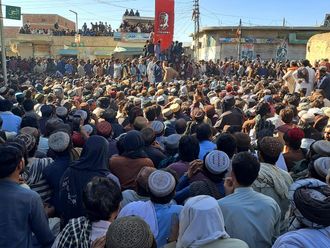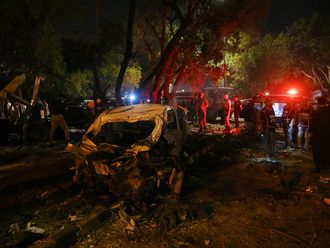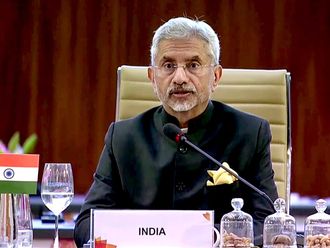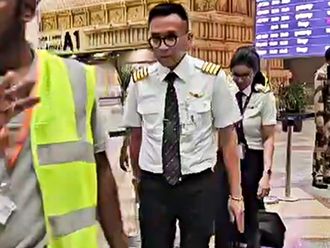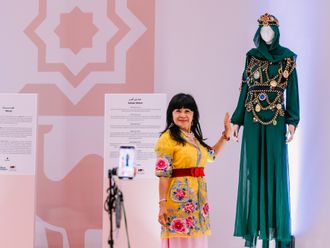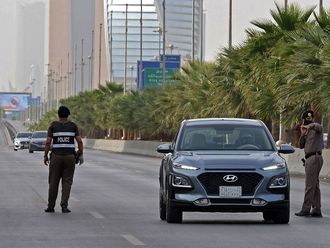Forward Operating Base Salerno, Afghanistan: The top US and Nato commander in Afghanistan said there will be more coordinated military operations on either side of the border with Afghanistan, and commended Islamabad on its "impressive" counter-insurgency efforts.
The Taliban in Afghanistan and other extremist groups use safe havens across the border in Pakistan, and the US has been pushing Islamabad to clear the lawless tribal belt that runs along the frontier. The pressure has often strained US-Pakistani relations, with Islamabad bristling at suggestions it should do more.
General David Petraeus, who took over command of coalition troops in Afghanistan in July, said there had already been coordinated operations on both sides of the border, with Pakistani forces on one side and Nato and Afghan troops on the other.
"We want to do more hammer and anvil operations," Petraeus said late on Saturday, in an interview aboard a military transport aircraft as he flew around the country on Christmas visits to bases and combat outposts dotted across north, west, south and east Afghanistan.
Pakistan recognised "the need to do more to solidify their gains in [Pakistan's Federally Administered Tribal Areas], and we are going to coordinate with them to help their operations", he said.
But the general insisted that Pakistan's efforts at combating the various militant groups active in the country must be commended.
"We have to be very clear in recognising what Pakistan has done over the course of the last 22 months, which is quite considerable. They've conducted impressive counter-insurgency operations" in several regions, including the Swat Valley, the North West Frontier Province and the tribal regions, Petraeus said. "And they have sustained significant military losses and civilian losses during the course of that time."
Petraeus insisted that gains already made must be solidified before Pakistan expands its operations to other areas — such as troubled North Waziristan.
Plea for consolidation
"They are the first to recognise that there are groups in there that have to be dealt with over time," the general said, sitting at the desk of an office set up inside the military plane, laptops keeping him connected to operations across the country.
"But ... they've got quite a few short sticks and hornets' nests already, and rule Number 1 of a military operation is don't start something you can't finish. And they recognise the need to finish some of the operations they've already conducted before launching significant new ones."
Government forces have stepped up operations against extremist groups considered a threat to national security — notably the Pakistani Taliban. But the military has resisted pressure to move against extremists in North Waziristan, which is also home to Al Qaida-linked Haqqani network.
Forces in Pakistan and Afghanistan "have conducted very close coordination in the past two months in particular," Petraeus said, adding that he meets regularly with army chief Gen. Parvez Kayani, with two meetings held already this month, one in Kabul and the other in Islamabad.


